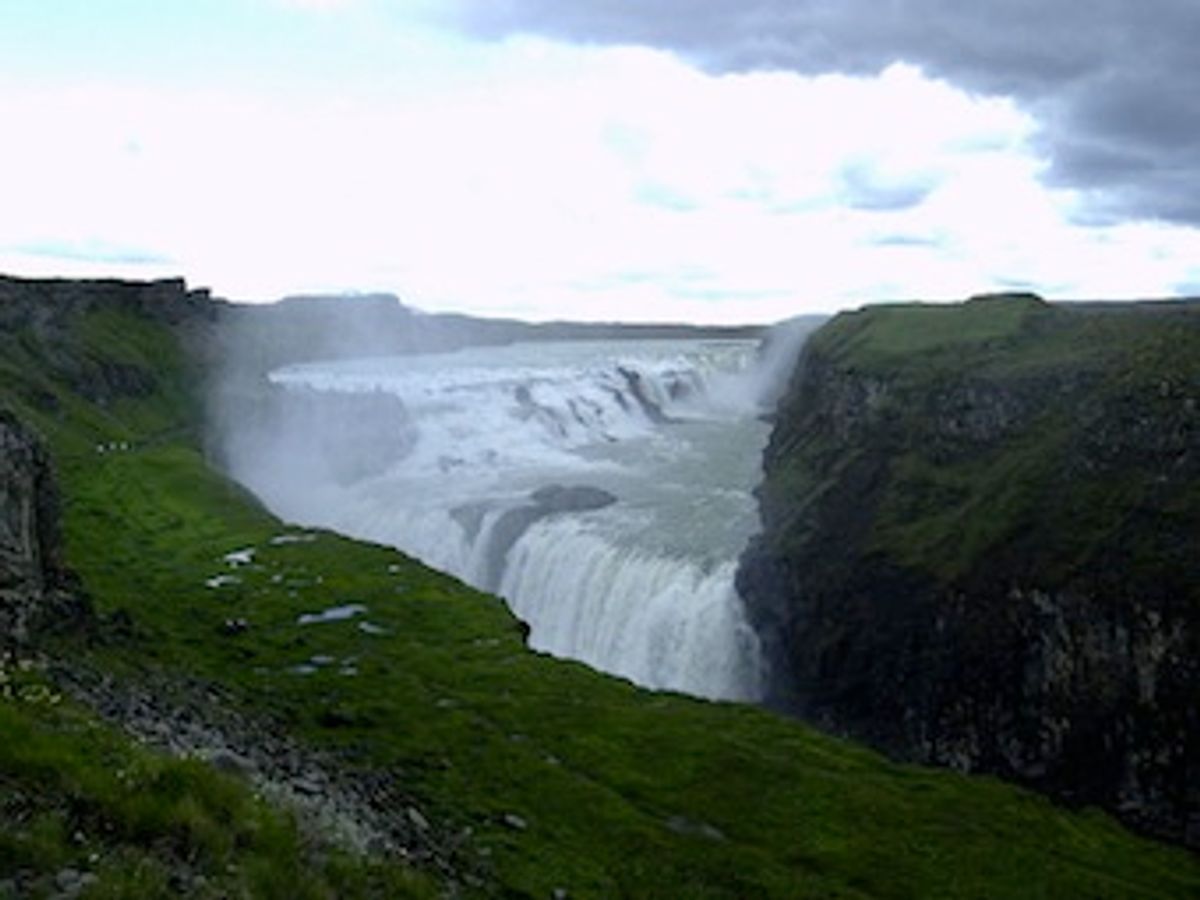Meanwhile, there is another fast-growing, power-hungry industry in the world: cloud computing and storage. “The cloud” seems so light and fluffy, but building a cloud involves huge clunky buildings full of servers. Just one of these server farms, according to an April report by Greenpeace, can consume the energy equivalent of 180 000 homes. The companies that run them do their best to be efficient, because high energy costs hurt profits—and also, in some cases at least, because of a corporate commitment to the environment. The April Greenpeace report praised Yahoo and Google for “prioritizing access to renewable energy in their cloud expansion” but criticized Amazon, Apple, and Microsoft for rapidly expanding their clouds “without adequate regard to source of electricity,” relying “heavily on dirty energy.”
Which brings us back to Iceland. Even with all that aluminum smelting, Iceland has a renewable energy surplus. And, since the recent addition of two new, high-speed, transatlantic fiber optic cables to the country’s single older fiber cable (and one more going into service soon) it’s got bandwidth to spare as well.
It turns out Iceland also has entrepreneurs with big ideas ready to take advantage of this power and bandwidth, such as GreenQloud, which says it's ready to offer commercial cloud services. At the DemoFall conference last week in Santa Clara, Calif., cofounder Eirikur Hrafnsson described how he started working on the idea that became GreenQloud in 2008, after seeing a Gartner report indicating that the IT industry is responsible for as much greenhouse gas generation as the aviation industry—some 2 percent of the world’s carbon emissions. A McKinsey report around the same time predicted that this number would double by 2020.
Hrafnsson says his company wants to take on Amazon, currently the go-to company for businesses and government entities that want to offload their computing to the cloud. Will big organizations really trust their data to a little startup in Iceland? Hrafnsson is betting that a trifecta of attributes—greener, cheaper, and what he says is a better software platform—will inspire potential customers to give GreenQloud a chance.
Photo: Gulfoss, Iceland. Source: Wikimedia Commons
Follow me on Twitter @TeklaPerry.
Tekla S. Perry is a senior editor at IEEE Spectrum. Based in Palo Alto, Calif., she's been covering the people, companies, and technology that make Silicon Valley a special place for more than 40 years. An IEEE member, she holds a bachelor's degree in journalism from Michigan State University.




